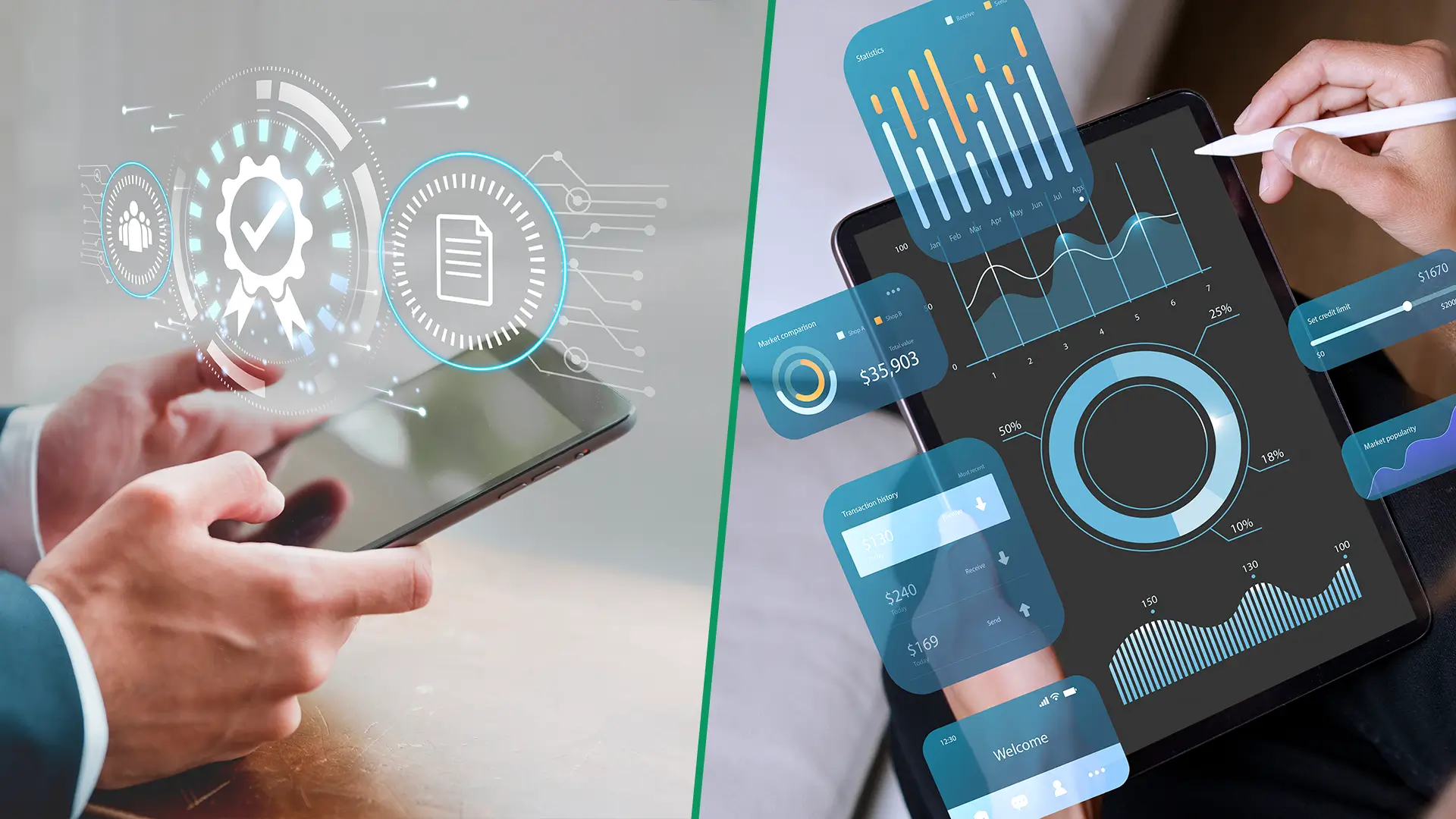AI-Powered Key Takeaways
Introduction
The retail industry is the most impacted by digital transformation compared to other industries, as the industry is evolving rapidly. If consumers witness poor customer experiences in a store or on an e-commerce app, the retailer's reputation is at high risk. Digital transformation is happening across various business functions in the retail industry, like e-commerce, POS, and back-end processes. Owing to the fast-paced digital transformation, companies in the retail industry are under immense pressure to deliver seamless, omnichannel customer journeys. Also, the ever-evolving demands of customers require retail enterprises to continuously provide and deploy new services and features as fast as possible.
To tackle challenges posed by digital transformation, organizations need to have fast and effective software testing solutions for the retail industry. Automation testing is one of the important technologies used by retail enterprises to streamline processes in retail stores, warehouses, and distribution centers. With automation testing, companies in the retail industry can leverage the advantages of digital transformation while managing the risks. Automation testing is the solution that can help companies deliver their products fast and with good quality. In the retail industry, automation testing has become imperative to manage huge test volumes and make profits from digital transformation.
Benefits of Automation Testing in the Retail Industry
The retail industry has recently witnessed an intense transformation due to changing user behavior. Thus, it is important for retail companies to leverage advanced software testing solutions in the retail industry. With this revolution, automation testing has become an indispensable element for a retailer’s success. Let’s check some of the crucial benefits of using automation testing in the retail industry.
1. Get Fast Feedback on Build
Owing to business requirements, retail enterprises deploy builds on a weekly basis. To make sure the applications developed are fit for retail purposes and operate effectively across all systems and hardware configurations, companies need to deploy an effective testing method that offers fast feedback and insights on the app's performance. With automation testing in place, testers can gather fast feedback on the code and help developers make an informed decision on software deployment.
2. Increase the Coverage of Omnichannel Apps
In the present world, applications’ omnichannel availability is no more a customer expectation but an increasing demand. Customers require the ability to shop anywhere at any time on their chosen device without any inconvenience. To enable this, retail organizations need to test their apps in a sheer volume of platforms, screen sizes, and OS combinations. Automated software testing for retail apps can help these companies by testing apps automatically with various combinations to reduce quality risk in the least possible time and validate app behavior on different platforms.
3. Easily Integrate with Third-Party Applications
As the retail market is getting more competitive, companies are trying to scale up operations and increase delivery times with integration between different networks, especially third-party apps for payment processing, analytics, social media integration, etc. Third-party app integration can pose challenges for the testing teams of retail companies to integrate continually with various devices, systems, and applications. Automation testing is one of the only solutions that validate workflow and identify vital issues during third-party app integration.
4. Execute Smart Automation Testing
With the use of AI- and ML-based automation testing for writing and maintaining test scenarios or analyzing the test result, retail enterprises can deliver better quality, efficiency, and speed during deployment for their builds. Automation testing will also help companies identify errors and enable testing teams to fix them faster. Using automation testing, retail companies can satisfy their customers’ requirements, thus, achieving improved retention and high revenue.
5. Perform Non-functional Automation Testing
Non-functional testing is very much required for all applications and platforms used in the retail industry. This type of testing will help retail enterprises to reduce the risk of degrading usability and customer experience. Automation of non-functional testing can support the testing teams to reduce the overall time required to complete a test cycle. With non-functional automation testing, enterprises can fix issues earlier in the software lifecycle.
Why HeadSpin is Crucial to Retail Companies’ Automation Testing
HeadSpin supports global retail companies with its retail app testing solution to deliver better customer experiences and achieve improved business performance.
1. Deliver Tailored Experiences
With the HeadSpin Platform, retail companies can enable the capability to provide a bespoke experience to every customer. By providing customized customer experiences with the help of HeadSpin, enterprises can enhance customer trust and improve business results. Retail organizations can leverage HeadSpin’s unique capabilities to ensure the customized experience they envision for their customers.
2. Tackle the Peer Influence on Customers
Nowadays, most customer decisions are driven by peer opinions and reviews. So, it is crucial to understand and compare products with competitors. HeadSpin’s anonymized peer benchmarking helps retail companies to compare their performance with competitors with respect to various KPIs and CUJs. With this data, retail companies can enhance their customer experience and engagement to improve their business. In addition to that, the HeadSpin Platform can also help retail enterprises enable proactive monitoring to catch issues before their customers are aware of them.
3. Enable Seamless Third-Party App Integration
As we discussed earlier, third-party app integration is important for retail companies. With HeadSpin’s API usage monitoring feature, retail enterprises can check how their APIs are used by applications and the impact of third-party APIs on their application’s performance. The HeadSpin's software testing solution for the retail industry enables companies to analyze end-to-end automation in the retail domain to ensure proper and seamless integration.
4. Easily Test Apps in Different Combinations
With the evolving digital ecosystem, the opportunity for retail organizations to sell their products arises from different channels. Retail platforms of the companies need to be analyzed on a diverse set of devices to ensure that no opportunities are missed. Using HeadSpin’s global device infrastructure, retail companies can perform testing of their apps on real devices with different OS-network-device combinations.
5. Increase the Ability to Scale Out
Consumer habits are constantly changing, and market volatility brings out erratic requirements to scale. Testing at a global scale is needed to address evolving consumer requirements. With multiple deployment options, HeadSpin makes global testing flexible and easier for retail enterprises. Using HeadSpin’s retail app testing solution, retail companies can test their apps in 50+ locations worldwide remotely.
Don’t Rely on iOS Emulators & Android Simulators. Test on Real Devices
How HeadSpin Helped a Global Retailer Improve Its Mobile Apps
Let’s see how HeadSpin supported a well-known global retail enterprise to improve its app user retention and user engagement.
Challenge Faced by the Company
Measuring real-world performance data has been extremely difficult for companies. Many companies rely on simulations instead of actual user conditions, which often don’t show the actual user experience. The global retail company was also facing a similar challenge. To address this challenge, the company was looking for a comprehensive testing solution to measure the performance of their applications across multiple devices and carrier networks and perform multiple tests in parallel.
How Did HeadSpin Support the Company?
HeadSpin deployed its Platform and helped the company to test the performance of applications running on real networks. The insights gathered from the Platform supported the company in easily identifying potential issues, investigating them, and quickly taking action to fix them. With the help of the HeadSpin Platform, the company also performed regression testing using more than 3,000 test cases running in parallel on multiple devices.
To test the in-store apps of the company, HeadSpin used Zebra handheld devices and identified network traffic and KPIs during the user journeys such as item search, display, and checkout. HeadSpin also validated QR code scanning as input to the app and used Appium to define location spoofing in order to validate coupons. With the methods mentioned above, HeadSpin provided the company with actionable insights for improving its applications' performance.
Impact Created by HeadSpin

With HeadSpin’s performance session analysis, the company identified extraneous call-to/auth endpoints that were holding up the app from loading. The company used this data to improve its loading time by fixing errors. Using the insights from the HeadSpin Platform, the company was able to fix most of the issues faced by its users and enhance its overall app user retention and user engagement.
Conclusion
Digital transformation has made retail businesses very complex. In order to deliver flawless digital and customer experience, meticulous testing of every component involved in a digital system is required. So, using automation testing has become imperative for retail companies to improve user experience and reduce threats to security.
To automate your testing, use the best AI-based testing platform, HeadSpin, that can help you enhance the app's quality, reduce costs, and accelerate time to market.
FAQs
Q1. What are the main tests that are automated to overcome retail application challenges?
Ans: Performance testing, security testing, load testing, integration testing, and usability and web accessibility testing
Q2. Can you perform online identity validation of retail apps using HeadSpin?
Ans: Yes. With the HeadSpin Platform, testers can run and automate fingerprint- and face-recognition-based use cases in retail apps.
Q3. What are the factors that determine the effectiveness of test automation in retail apps?
Ans:
- Time saved by running scripts over the manual execution of test cases
- Defects found
- Test coverage
- Maintenance time or development time
- Stability of the scripts
- Test reusability
Q4. What is POS testing?
Ans: A point of sale (POS) is the facility where transactions are done. These systems are used in retail stores, restaurants, hospitals, and anywhere else that accepts payments. POS testing is the evaluation of a point-of-sale application.


























.png)


























-1280X720-Final-2.jpg)






